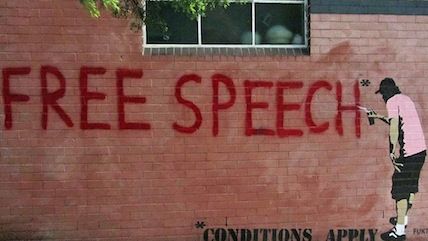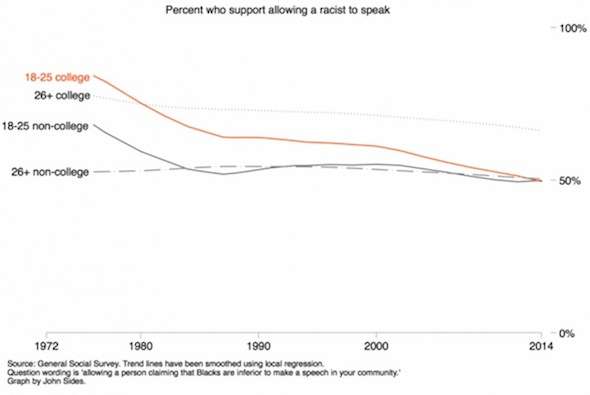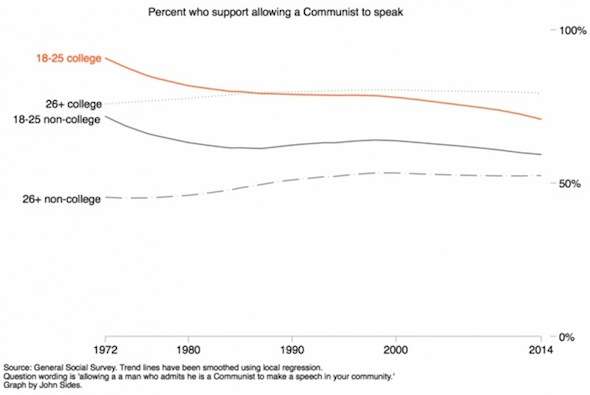Where Have All the Free Speech Fans Gone?
The big drop in campus support for free speech happened in the '70s and '80s, but the decline hasn't stopped lately.

Starting in the '70s, the General Social Survey has periodically asked Americans if they think someone should have a right to give a racist speech in their community. John Sides has charted the responses over at The Washington Post, dividing the people surveyed into four groups: Americans aged 18 to 25 who have had at least some college education, Americans aged 18 to 25 with no college education, older Americans with at least some college education, and older Americans with no college education. The results are striking:

The first thing you'll probably notice is that the percentage of the college-age crowd supporting the racist's freedom of speech has decreased dramatically over those four decades. Another thing you'll notice is that the college kids aren't leading the way so much as they're converging with the non-college crew. But what really leaps out for me is when most of the drop happened. For the people who are actually on campus, the big plunge ended in the late '80s. Things then flattened for a while, sliding slightly but not severely in the 1990s; the decline didn't accelerate again until the 21st century.
This flies in the face of folk memory, which tends to treat the '90s as the first age of political correctness. But it's probably better to remember that period as a time of backlash against political correctness. That first big wave of "P.C. Kids Gone Mad!" stories that hit the national press in 1990 wasn't a sign that pro-censorship sentiments were taking off; it was a sign that more people were resisting those sentiments. When there's a backlash against some social force, many people assume that force is surging, just because they didn't really notice it before. That doesn't mean it's actually on the rise.
But that's not all that happened in the '90s. Sides also charts the percentage of Americans in each group who support free speech for communists. Here the decline in the college crowd isn't as severe—the share supporting the communist's rights is well north of 50 percent—but there's still a noticeable drop at the beginning, followed by a flattening in the '90s and then a resumption in the post-9/11 era:

So the fall-off in campus tolerance for controversial speech doesn't just affect the right. The good news here is the trend among those 26-and-uppers. The ones with a college education didn't see any decline, and the ones without a college education have actually grown steadily more tolerant. (A third chart, which I won't repost here but you can find in Sides' article, shows a similar jump in the number of non-college-educated older Americans willing to back the free-speech rights of an atheist.)
The biggest question for me, looking at those data, is why the decline in collegiate civil libertarianism resumed after the '90s. One possible factor: The further you get into the 21st century, the more college-age people there are who don't remember the '80s. Backlashes fade with memory.
